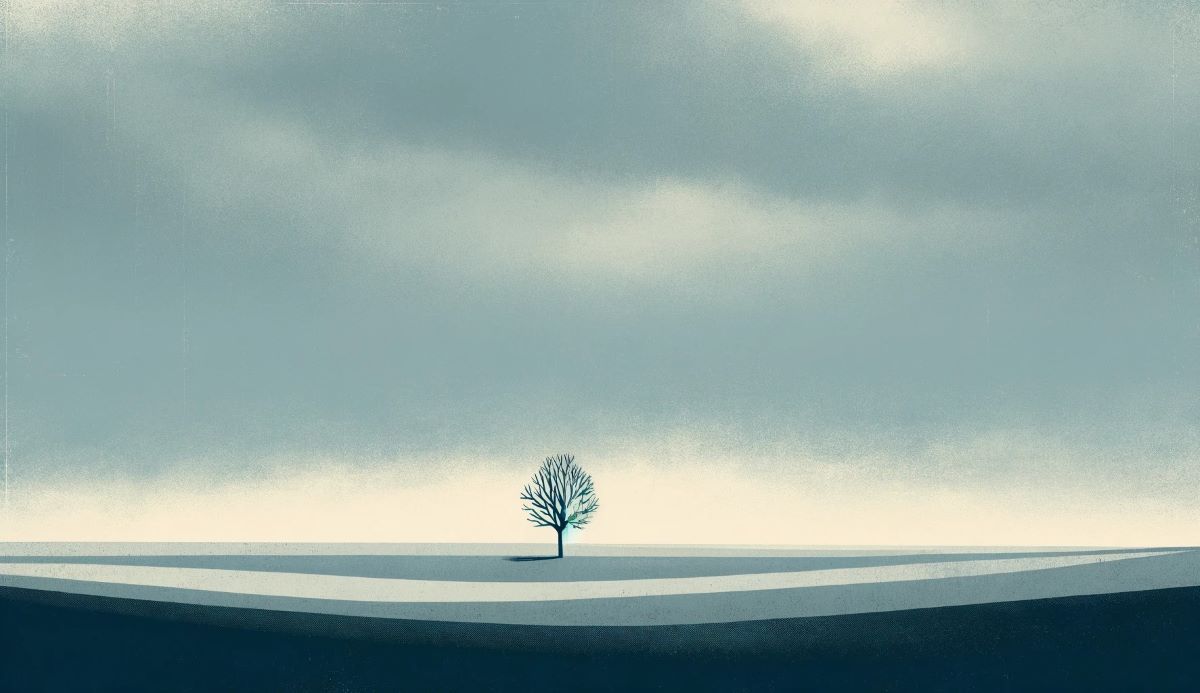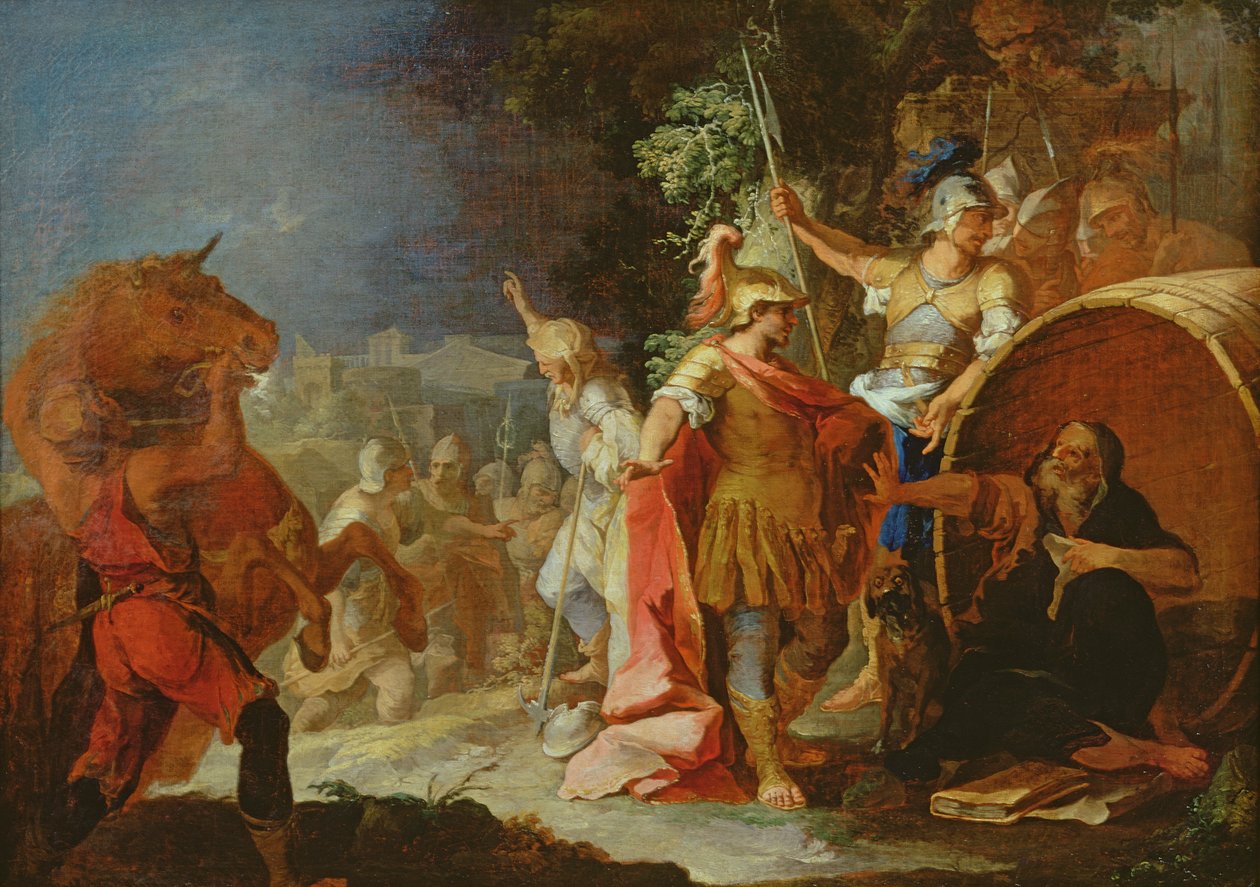Marcello Veneziani highlights the universal and practical nature of philosophy, asserting its value beyond academic circles as a vital, everyday practice that influences how we live and approach death. He draws on Pierre Hadot’s works and ideas, suggesting philosophy should be integrated into daily life as a form of spiritual exercise and personal transformation, enhancing our understanding of the world and our place within it.
* * *
What is the use of philosophy? A timeless question with no definitive answer, it subtly reproaches its existence despite its certified uselessness, perhaps implying an accusation of pretense. Yet, philosophy is not solely for philosophers or, worse, professors—the devotees of that discipline often described as making no difference whether it is present or not. Instead, philosophy is a universal public good, relevant to everyone, from childhood when the poetic-philosophical mindset is most vivid, fresh with life. Each person, according to their own mind, status of thought, cultural level, and reading comprehension, engages with philosophy, often unknowingly nourishing themselves with its ideas. This knowledge was recognized by people in the global south, not just our southern regions, but also the vast East, where philosophy is a natural plant producing invisible fruits; they may call it differently, but their view of life and the world is essential for existence.
Beyond the universal issues it addresses, philosophy has a specific, direct, and practical theme that has always been significant and is even more so today: philosophy as an education for living, a practical life exercise. This simple yet complete definition comes from the renowned scholar Pierre Hadot, who passed away in 2010. I have followed Hadot through his works on Plotinus, Marcus Aurelius, Seneca, and ancient thought, and what he termed “spiritual exercises.” A priest that never was, yet not disillusioned with religion, merely “emancipated,” as he put it, Hadot saw philosophy not just as pure knowledge but as a means to transform humans, improve living, awaken us, and elevate us.
Recently, an important collection of his essays, translated by Giorgio Leonardi, titled “Philosophy as Adult Education” (Marietti1820), was published. It’s a work that urges us to live philosophy, not just read about it, to make it a daily exercise, a practice of life, a training for living and dying, and—if I may extend the perspective—to know how to age.
This view is epitomized by the wisest emperor of all time, Marcus Aurelius, who brilliantly stated, “live each moment as if it were your first and your last”: the philosopher’s gaze includes both the wonder of being in the world and the lucid awareness of leaving it. In ancient wisdom, Hadot converges Stoic vigilance, Epicurean joy, and the mystical inspiration found in Plotinus. To philosophize is to awaken, to live with eyes wide open. Plato and Aristotle acknowledged that wonder is the foundation of philosophizing, as well as the ability to learn to die. The marvel of being born and the pain of fading are the bounds of his life’s philosophy; the amazement of existing in the world and the clear consciousness of having to leave it. Learning to die was a lesson Hadot took as a teenager from Montaigne; that lesson translated the ability to train for death and to tame it, which the ancients placed at the base of wisdom. From this vision, Hadot envisions the creation of schools or communities that can teach, learn, and benefit from these thoughts, living them daily. A purpose even more urgent today as not only are such reflections, deemed intrusive, being removed, but also the teachers and students are disappearing, leaving no successors, and everything ends in nothingness. Yet life is connection, transmission, transfer of knowledge and experiences, memory and promise, living is about building bridges, establishing continuity. Even Nietzsche, the loner, dreamed of living communally with a group of philosophers, says Hadot, “to elevate to a higher life marked by dialogue and friendship.” Philosophy arises in solitude but fosters community.
The deepest level of this connection is identified by Hadot in mysticism, and in the secret, symbolic teaching through allegory that leads to “an intimate and direct union of the human spirit with the fundamental principle of being,” meant as both practical life and knowledge. The goal is to free oneself from the Ego and Narcissus, says Plotinus, and return to the All, to reunite with the One. Beyond a certain level, consciousness is no longer sufficient; indeed, “without consciousness,” Plotinus observes, “acts are purer, more intense, and alive at the highest degree.” This leads to ecstasy, brief and dazzling, a loving fusion, mystical joy. It is preceded by the sense of the sacred that for Hadot evokes both anxiety and serenity.
For Hadot, the philosopher remains fundamentally an educator, well aware, as Kierkegaard (and Gentile too) said, “to be a teacher is to be a disciple.” Education, explains Hadot, takes on the task of “straightening” the child, bringing to light the child within us. Philosophy is the art of living: it educates us to be in the world, to understand it, love it, and ultimately to leave it. According to Hadot, following the Kantian enlightenment mantra “Sapere Aude!” (Dare to know), the mission of philosophy is to educate us to think for ourselves. This is a splendid aim if it does not devolve into a presumption of reason’s autonomy from every text and context and from everything not originating in our own minds: there are thoughts, traditions, rituals, symbols, and liturgies that precede and overshadow us, and our intelligence also involves the flexible ability to utilize experiences, inheritances, customs, and inherited ideas.
The basis is the love of truth that accompanies the philosopher. But how is the truth demonstrated? Hadot turns to the spiritual philosopher Louis Lavelle: “Truth is a living act… it proves itself through its efficacy, through the communication it establishes between us and the universe, between us and all other beings.” Thus, the truth is not a mere statement or theory but a practical test, discovered only through living it. A beautiful and challenging thesis.
The spiritual exercises Hadot advocates allow us to transcend our individual and partial viewpoints; they focus us on the present, enable us to view things from a higher perspective, and heal the soul. Yet, Hadot acknowledges that often “we philosophers live in a bubble,” reducing spiritual exercises to intellectual exercises; thus, the philosopher’s mission fails. Hadot recalls when as a young man he secluded himself for many days at home studying the Neoplatonists; when he finished his research, he went to the bakery to buy bread. There, he realized he had lived removed from the world, from the laborious noise of life, distant from the freshly baked bread that marks the repetition and renewal of life every day. The fragrance of a freshly baked baguette returned him to the simple beauty of life.
La Verità, May 3 2024





